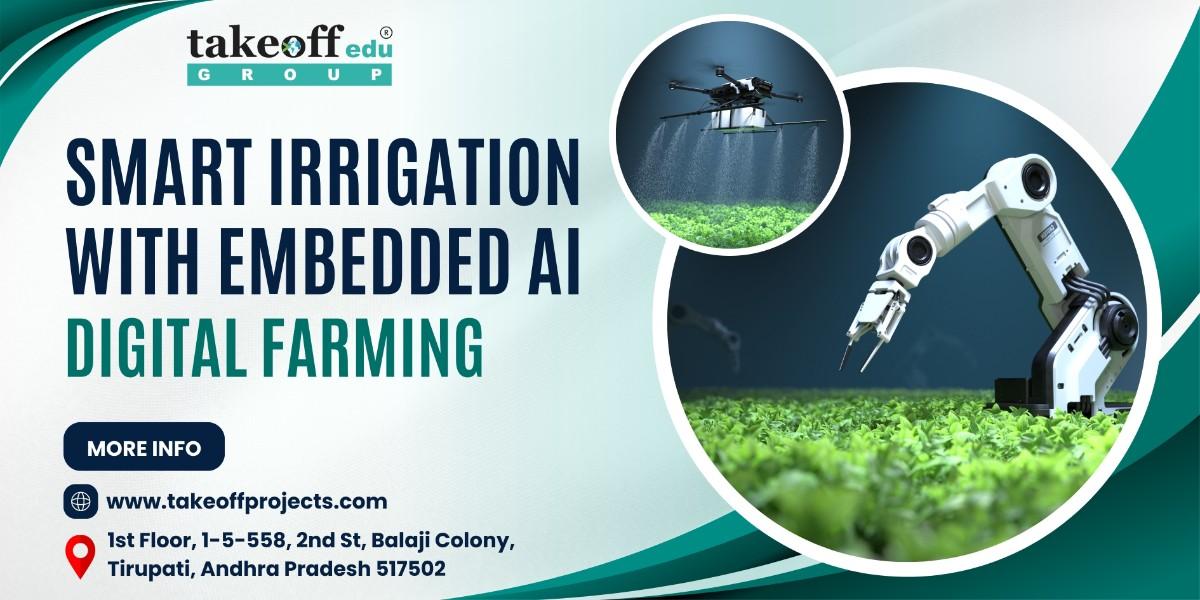What is Biomedical Engineering
The branch of engineering which deals with employing the engineering principles to the biology and healthcare sector. The work of biomedical engineers or bio engineers is to develop various healthcare equipments, devices and systems by working along with researchers, doctors and therapists.
This field of study acts as the combination of engineering and medical sectors so that it can be utilised in the healthcare and medical applications. There are numerous healthcare issues which are required to be addressed and these issues can be rectified by the collective usage of mechanical, electronics and various other engineering principles. Some of the useful equipments developed using biomedical engineering are ventilators, different kinds of metres or readers used for monitoring blood pressure, body temperature, blood sugar level etc.
Top Biomedical Projects
The top biomedical projects for final year are listed below for the students reference:
Highly Compact Device Modelling and Notification System for Outdoor Patient Monitoring System
Designing IoT-Based Independent Pulse Oximetry Kit as an Early Detection Tool for Covid-19 Symptoms
Design of a Vaccine Storage and Transportation System in Remote Areas Based on Raspberry Pi
DIV Ventilator Using Arduino with Blood Oxygen Sensing for COVID Pandemic
Low Cost Robotic Agent Design for Disabled and Covid-19 Affected people
Design of a Monitoring System Using Pill Bottle Mounted Wireless Sensors
Intelligent Monitoring System for NICU (Neonatal Intensive Care Unit)
Raspberry Pi-Android Based Comatose Patient Monitoring System Using Web Server
Human-cloud Integration In Next Generation Healthcare Systems For Wearable Devices
Smart Healthcare Patient Data Privacy and Security system using IOT
A wearable system for respiratory and pace monitoring in running activities: a feasibility study
Infusion Liquid Level Detection Tool Using IR Sensors and Photodiode Based on Microcontroller
Also read : Wireless Sensor Network Projects Using Arduino
Responsibilities of Biomedical Engineer
Some of important responsibilities possessed by the Biomedical Engineer or Bio Engineer are:
To design biomedical devices and validate by proper testing.
To install, repair, maintain, calibrate the designed biomedical equipment.
To perform biomedical research and development
To document the research in the form of technical papers and to publish them in suitable healthcare and biomedical journals.
To upgrade or enhance the standard and performance of the existing biomedical gadgets or equipment.
Why to do Biomedical Projects?
The Bureau of Labor Statistics (BLS) predicts that there will be up to 27% increase in the employment of biomedical engineers by 2022, when compared to the count in the year 2012. This is due to the fact of increase in the ageing population and the benefits of the biomedical sector. And hence a proper awareness must be given to the public about the advancements and benefits of biomedical engineering.
So, doing biomedical projects for final year greatly adds upon your value and also helps to get strong practical knowledge along with the theoretical knowledge acquired during the course of the program.
History of Biomedical Projects
The history of doing biomedical and other related projects have proven to be existing from long ago. The best example of one such biomedical project is the discovery of the leather and wood made prosthetic toe present in an Egyptian mummy whose age is found to be around 3000 years. And before this, the discovery of basic crutches and walking sticks itself is considered to be the forms of biomedical projects. And probably one who has invented splint for a broken bone is considered to be the earliest biomedical engineer.
The advancements in science and technology have evolved the biomedical engineering over the years. Humans have made more effective Biomedical Projects for diagnosing and treating various diseases. One such example is the invention of hearing aids which makes use of sound amplification methods to rectify hearing loss.
Different Biomedical Projects
Some of the famous Biomedical projects done by the members of local community, the engineering members and clinicians in the University of Rochester are mentioned here. They are:
Clinical devices
Biomedical research technology
Biomedical optics technology
Ultrasound and imaging technology
Accessible technology to enable daily activities
Clinical Devices
Different types of clinical devices such as stents for the liver surgery, vestibular evaluation chair, sizing device for wheelchair, airway suction catheters, monitors for measuring blood pressure, biopsy needles designed specially for reduced blood loss, etc. are done as projects by various therapists, physicians and nurses. And since the Medical Centre in the University is nearer, doing these projects is quite easy. This helps them to learn about the challenges present in the clinical environment along with the procedures for the handling of various clinical devices.
Biomedical Research Technology
Various innovative research techniques were proposed by the faculty of Biomedical Engineering for the treatment of several diseases and medical conditions. Here most of the research performed related to the cell and tissues are listed below:
Developed microscopy-based systems to characterise cell adhesion and pulmonary surfactants
Investigated novel bioreactors to study red blood cell development and cartilage tissue engineering
Examined systems for transdermal drug delivery for asthma treatment
Developed a system to test a serial filtration method using silicon nanofillers.
Created different prototypes for measuring the head acceleration throughout the day-to-day events and the physical activities of overweight children are also measured through these prototypes.
Biomedical Optics Technology
The use of optical technology has revolutionized numerous medical devices, whether for the surgical suite, the doctor’s office, or remote locations.
The Centre for Visual Science and the Institute of Optics has done certain projects on Biomedical Optics technology.
Vision correction surgery
Methods for bedside blood analysis
Sublingual monitors for the ICU
Procedures for minimally invasive spinal surgery
Ultrasound and Imaging Technology
The vast technologies and the expertise in the sector of medical imaging and the ultrasound have paved way for developing certain projects such as:
Prototype filters and robotic needle-steering systems for improving the accuracy of image-guided cancer treatments
Improvements to liver and cardiovascular stent systems and biopsy procedures
Image analysis methods to use video to study the activity of experimental animals
A useful prototype ultrasound transducer was developed for detecting and monitoring air emboli within the vena cava which normally occurs during brain surgery.
A cost-effective alternative of fracture detection is done through the advanced ultrasound and specialised techniques like MRI which is also useful to learn about chronic back pain.
Accessible Technology to Enable Daily Activities
To assist people in the daily challenges they are facing due to disability and illness, several accessible technologies are presented as biomedical projects for improving the lives of normal people. And some of the important projects developed for improving the day-to-day activities of normal people are:
A project to improve the lives of quadriplegic children so that they could interact with the surrounding environment.
An innovative attempt made to make the normal people understand the difficulties faced by hearing loss.
And enabling the easy management of medication by everyone at home itself.
Various Useful Life-Saving Biomedical technologies
Biomedical engineers have developed a number of life-enhancing and life-saving technologies. These include:
Prosthetics, such as dentures and artificial limb replacements.
Surgical devices and systems, such as robotic and laser surgery.
Systems to monitor vital signs and blood chemistry.
Implanted devices, such as insulin pumps, pacemakers and artificial organs.
Imaging methods, such as ultrasound, X-rays, particle beams and magnetic resonance.
Diagnostics, such as lab-on-a-chip and expert systems.
Therapeutic equipment and devices, such as kidney dialysis and transcutaneous electrical nerve stimulation (TENS).
Radiation therapy using particle beams and X-rays.
Physical therapy devices, such as exercise equipment and wearable tech.
Conclusion
This article discusses the importance of doing biomedical projects. Initially, an introduction about what is biomedical engineering and the responsibilities of biomedical engineering were discussed. And a briefing about why to do the projects in the biomedical sector was also given. And the past history of some biomedical projects is also given. Then different types of biomedical projects done in the famous University of Rochester were also listed. Then finally the top biomedical projects were also listed.

 Smart Irrigation with Embedded AI: Digital Farming
Smart Irrigation with Embedded AI: Digital Farming  Designing Smarter Cities: Embedded IoT Systems for Urban Innovation
Designing Smarter Cities: Embedded IoT Systems for Urban Innovation  Top 5 PIC16F77A Projects for Embedded Students
Top 5 PIC16F77A Projects for Embedded Students  Top 7 Arduino Projects for Students
Top 7 Arduino Projects for Students  Top 5 Node MCU Projects
Top 5 Node MCU Projects  Top 5 Raspberry Pi Projects
Top 5 Raspberry Pi Projects  Top 7 ARM7 Project Ideas
Top 7 ARM7 Project Ideas  Top 5 Mechatronics Projects for ECE
Top 5 Mechatronics Projects for ECE  Top 5 Renewable Energy Projects Ideas
Top 5 Renewable Energy Projects Ideas  Top 7 Biomedical Projects for Students
Top 7 Biomedical Projects for Students  Top 7 Artificial Intelligence Project Ideas
Top 7 Artificial Intelligence Project Ideas  Top 7 WSN Projects for Students
Top 7 WSN Projects for Students  Top 7 Machine Learning Projects for BTech & MTech
Top 7 Machine Learning Projects for BTech & MTech  Top 7 Image Processing Projects
Top 7 Image Processing Projects  Top 7 Industrial Automation Projects
Top 7 Industrial Automation Projects  Top 7 Deep Learning Projects for Final Year Students
Top 7 Deep Learning Projects for Final Year Students  Top 7 Robotics Projects for Engineering Students
Top 7 Robotics Projects for Engineering Students  Top 7 IoT Projects for Students
Top 7 IoT Projects for Students  Arduino based Projects for Final Year
Arduino based Projects for Final Year  Embedded Projects for ECE
Embedded Projects for ECE  FPGA Projects for Engineering Students
FPGA Projects for Engineering Students  New Deep Learning Projects Ideas & Topics 2022
New Deep Learning Projects Ideas & Topics 2022  Machine Learning Projects for Final Year CSE
Machine Learning Projects for Final Year CSE  Engineering Projects on Machine Learning
Engineering Projects on Machine Learning  Wireless Sensor Network Projects
Wireless Sensor Network Projects  Wireless Sensor Network Projects with Source Code
Wireless Sensor Network Projects with Source Code  Innovative Bio Medical Project Ideas & Topics 2022
Innovative Bio Medical Project Ideas & Topics 2022  21+ Interesting Mini Projects on Robotics
21+ Interesting Mini Projects on Robotics  Engineering Student Projects on Robotics
Engineering Student Projects on Robotics  Innovative IoT Project Ideas for Engineering Students 2022
Innovative IoT Project Ideas for Engineering Students 2022  Latest Mini Projects for ECE Students 2022
Latest Mini Projects for ECE Students 2022  List of Simple Arduino Projects
List of Simple Arduino Projects  Innovative Machine Learning Projects
Innovative Machine Learning Projects  9 Raspberry Pi Final Year Projects
9 Raspberry Pi Final Year Projects  7 Interesting IoT Based Projects
7 Interesting IoT Based Projects  Top 10 Real Time Embedded Systems Projects for Students 2022
Top 10 Real Time Embedded Systems Projects for Students 2022 
 Paper Publishing
Paper Publishing


